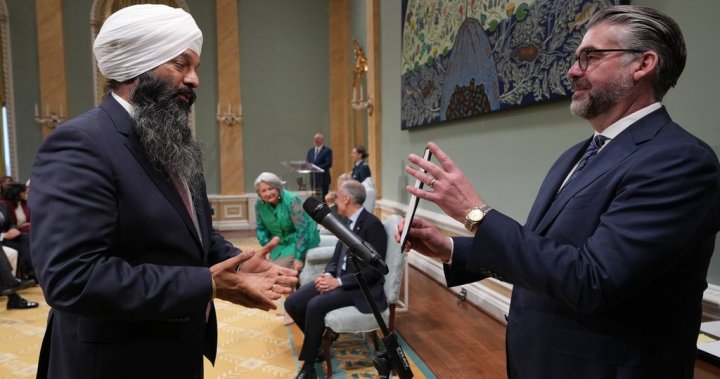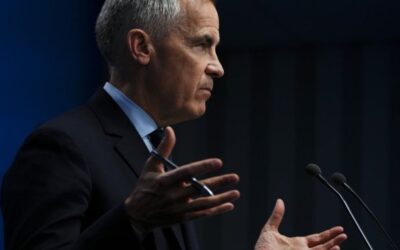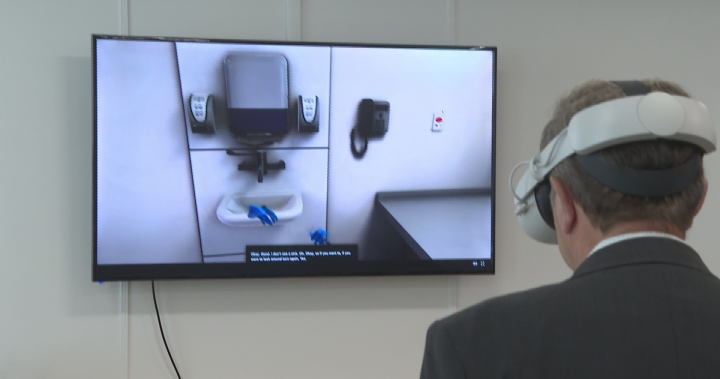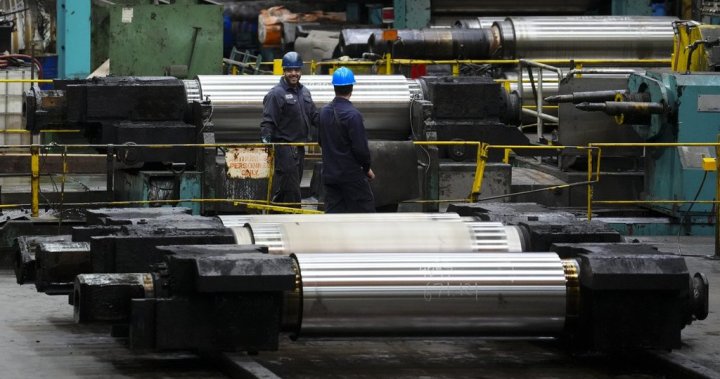Canadian foreign aid must be used efficiently, be transparent: minister – National

The MP overseeing foreign aid says Canada must take a more efficient, more visible approach to development and humanitarian assistance to make the case for maintaining aid spending as the United States pulls back.
“Those that are staying the course need to be more nimble and need to be more versatile,” said Randeep Sarai, secretary of state for international development, in his first major interview since taking on the role.
Sarai said his top priorities in the job are to ensure Canadian aid dollars are being spent efficiently and to give Canadians and aid recipients a better idea of where the money goes.
“It doesn’t mean that a sack of grain needs to have a Maple Leaf on it,” he said. While branding can play a role, Sarai said, the government can also spread its message through social media, outreach campaigns in recipient countries and possibly through provincial government-approved textbooks.
“Canadians would be happier, and I think those recipients would have a better value and respect and admiration for Canada and its aid,” he said. “So that’s definitely a priority.”
Sarai said Canadians should know how their aid dollars work to, for example, flood-proof areas prone to natural disasters or provide farmers with climate-resilient crops.
“A potato seed that comes from Prince Edward Island to a remote part of the Philippines can take a family from barely sustaining themselves to being able to not only feed themselves but also put their children through education,” he said.
Sarai worked as a lawyer in Surrey, B.C. before running for federal office in the 2015 election, when the Liberals under Justin Trudeau won a majority government. He became parliamentary secretary for veterans affairs in fall 2023.
While his current role falls short of a full ministerial portfolio, it puts him in charge of overseeing Canada’s aid budget and allows him to participate in some cabinet meetings.
Ottawa spent $12 billion on foreign aid in the fiscal year that ended in spring 2024, the latest year fully reported by Global Affairs Canada.

Half of that was core foreign aid spending, while $2.6 billion was for loans and development financing, mostly for Ukraine. Another $2.6 billion went to services for refugees arriving in Canada, while the rest largely went to global projects such as United Nations humanitarian appeals and preventive health projects.
Sarai said knocking on doors during the spring election campaign convinced him that few Canadians know where their aid dollars are going.

Get breaking National news
For news impacting Canada and around the world, sign up for breaking news alerts delivered directly to you when they happen.
“That’s what my priority is — how can I communicate and share that. And how can I get the best bang for your buck, the most efficient way to get our aid to those that are most in need,” he said.
Sarai said Prime Minister Mark Carney told him “to cut some red tape” and proceed with Global Affairs Canada’s ongoing reform of the bureaucracy it uses to fund development and humanitarian projects.
Charities have long claimed that Canada’s aid system is more cumbersome than those of its peers, with copious paperwork requirements that delay grants and freeze out smaller aid groups.
The department has said it’s trying to give clearer guidance so that it can keep preventing aid from being misused while allowing Canadian organizations to expand their reach by partnering with smaller, grassroots groups.
Aid groups have criticized Ottawa for drastically cutting back on development work in Afghanistan since the Taliban retook the country in August 2021.
Several of Canada’s allies have issued blanket exemptions to terrorism-financing rules to allow development workers to pay local staff without being accused of funding terrorism through the Taliban’s taxes on salaries.
Ottawa has instead opted for a complex permitting system that has been widely criticized.
Sarai said the broader reforms his department is undertaking will ensure Canadian organizations can access the funding Ottawa allocates for projects abroad.
Canadian non-profits have been bracing for worse since the United States started slashing its aid budget.
On behalf of U.S. President Donald Trump, billionaire Elon Musk placed thousands of staff at the U.S. Agency for International Development on paid leave and froze payments and shipments of aid around the world.
Canadian non-profits say that many of their projects ran off systems operated by USAID or UN agencies that relied on significant U.S. funding.

The aid sector has been further demoralized by the outcome of the recent G7 summit, which Canada hosted. World leaders at the summit made no major joint spending commitment to help populations facing conflict and hunger in places like Sudan, Myanmar and the Palestinian territories.
Canada promised at the G7 to spend $391.3 million “to catalyze private capital toward economic growth and development projects around the world.” Ottawa hasn’t said yet where and when the funding will be used.
The federal government also said it earmarked “up to $544 million” in loans for “new development financing in Latin America and the Caribbean.”
During the spring election, Carney said he would not follow the example of the U.S. or some European countries by cutting back aid. He said Canada’s approach is “to be generous and to be effective in our support of those who are most vulnerable around the world.”
Sarai said Carney’s decision to maintain aid recognizes that diseases don’t respect borders, that hunger and poverty lead to waves of to refugees, and that countries receiving Canadian aid are more open to Canadian trade.
He said Carney’s message is likely that Canadian aid needs “to be more nimble, be more creative, so we can do more with the same amount of dollars.” The government still hasn’t released a budget indicating whether the flow of aid will remain steady or see an increase or decrease.
Sarai is in Brussels this week for a pledging summit with GAVI, the global vaccine alliance. Ottawa did not announce new funding for the alliance at the summit. He then heads to Spain for a UN conference on development financing with private and civil society.
He expects to take part next month in the G20 meeting of development ministers in South Africa, and possibly a summit in the Solomon Islands focused on adaptation to climate change.
Sarai said his talks with ambassadors in Ottawa and visiting dignitaries have left him surprised at the depth and scope of Canada’s international reputation for multilateralism.
“The world still sees Canada as in a very good light. We don’t have a history that is colonializing other countries,” he said.
“We have played important roles before, and we should continue to to play those roles.”








